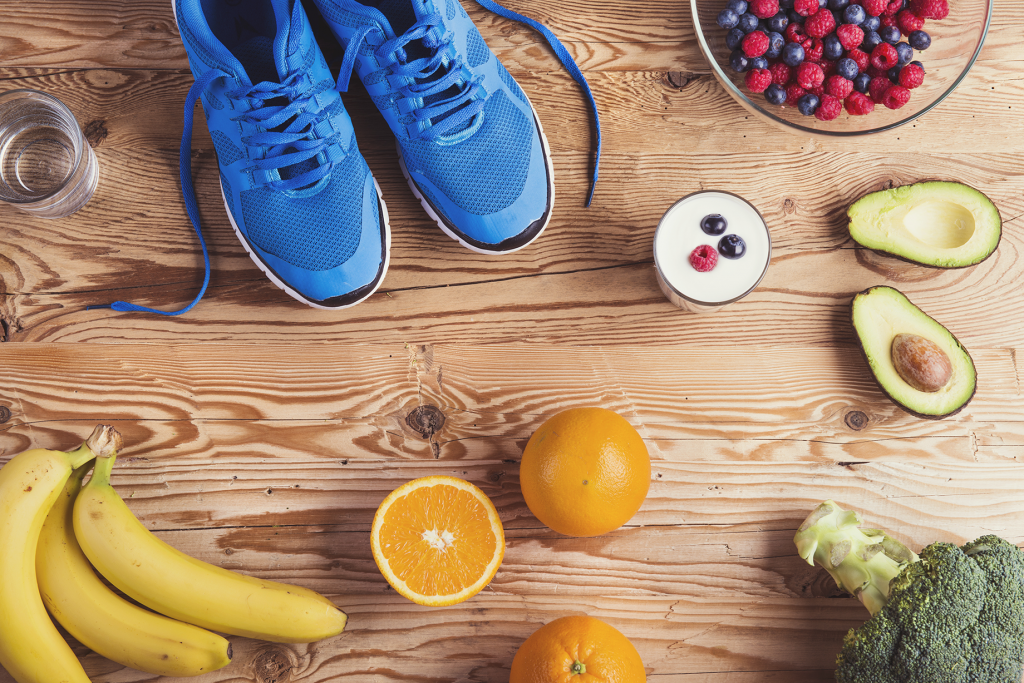To be in top shape on race day, it’s necessary to eat well in the lead-up. But how exactly should you do that? To answer this question we interviewed Silvia Capelli, nutritionist at Locarno Hospital. In the following interview you will find out more about nutrition before, during and after a long run or competition.
Silvia Capelli is a nutritionist at the EOC Regional Hospital in Locarno and sports dietician in collaboration with the Tenero Sports Center. She has experience in clinical nutrition and dietetics in various hospitals, outpatient clinics and in dietetics, with great passion for sports nutrition. Previously, she graduated in Nutritional Sciences at the University of Milan and in 2019 she obtained the CAS Certificate in Sports Nutrition at the University of Applied Sciences of Bern. She is also pursuing a Master of Science in Human Nutrition at the San Raffele Distance Learning University in Rome.
What are the different training phases of a marathon runner / long distance runner and how does nutrition vary during these phases?
Training for a marathon should be planned well in advance in order to be physically well prepared for the race and to avoid injuries. The phases and duration of preparation also depend on the athlete’s fitness level and other sports.
In general, for training sessions of less than 75 minutes, it is not necessary to eat while running. However, it is a good idea to try different foods and drinks before race day to avoid gastrointestinal problems during the competition and to get the body used to using its energy in the best possible way.
How often and at what time of day is it best to eat?
Several aspects should be taken into account in the distribution and frequency of food intake during training: the time of day you train, personal habits and professional activity; however, it is even more important to properly manage nutrition on the day of the competition.
In general, it is advisable to have the last complete meal at least 3 hours before running. 2 hours before running, you can have a light meal or snack (mainly carbohydrate-based), while in the half hour or hour before exercise, a snack that provides quick energy (e.g., a granola bar, banana, or energy gel) is recommended.
When, how much and why should we consume the following nutrients: Proteins, fats, carbohydrates?
All nutrients are essential for the athlete, but each has its own specific role.
Carbohydrates form the basis of an athlete’s diet, as they are the main source of energy. They are therefore important before and during activity to meet immediate energy needs, and after exercise to replenish glycogen stores.
Protein is necessary to maintain muscle mass, and it is important that it is supplied in adequate amounts each day.
Fats complement a balanced diet and are also used as a source of energy in low-intensity sports.
To what extent does stress affect nutrient absorption in the gut?
Stress affects how much and how we consume food. In sports, it can affect proper digestion and assimilation and therefore be associated with the gastrointestinal upset so typical of competition days.
More about this here.
Is the diet different depending on the objective (fat burning, speed, duration, intensity)?
Nutrition should always be specific to the individual’s goals, preferences, and potential problems.
If the goal is fat burning, it is necessary to control the daily calorie intake and the distribution of nutrients according to the training, so that you also eat fewer calories on less strenuous sports days or on rest days.
In endurance sports, large amounts of carbohydrates are needed to ensure an adequate supply of glycogen (and thus energy) during prolonged efforts.
Carbohydrates are also essential in high intensity speed training for immediate energy production, mental concentration and reaction speed.
To build strength, protein is important for building muscle mass. Of course, there should also be a good amount of carbohydrates.
How much fluid should be consumed and is it useful to calculate individual fluid needs or is it better to drink by feel?
Fluid intake is just as important as nutrition. However, there are no clear guidelines about when and how much to drink. We can say that 0.8 l of water per hour is the maximum amount that most athletes can tolerate. Among the different studies, there is also a school of thought that recommends drinking “by feel”, knowing that the biggest problem is “over-drinking” and not dehydration.
What do you think about supplements?
It is understood that a proper diet does not require additional supplements, even in high performance athletes. In some cases, liquid or solid supplements can be used, but they should be discussed with the dietician/medical advisor, especially after the diet has been optimized.
Last meal before the race: What is the ideal meal?
The ideal meal in this context is carbohydrate and easily digestible and should be eaten at least 3 hours before.
For example, bread with honey or jam, fruit and a cup of sweet tea or yogurt with oatmeal (test this during training to see if dairy products are tolerated). If you like salty food, you can eat a plate of pasta with tomato sauce and grated cheese or a sandwich with cooked ham and fruit salad.
What and how much should you eat during the race, and is it better to eat solid food or liquid?
The choice is personal, some people prefer sweet tastes, others salty. For efforts longer than 1.5-2 hours, ideally you should consume 30 g of carbohydrates in the form of bars/gels, rice snacks, or drinks about every hour. There is no preference between solid and liquid form, although the liquid form may be preferred by people with intestinal or digestive problems as it is generally better tolerated.
When should energy gels be consumed?
Gels are made of maltodextrins, which is ready-to-use energy. They are well tolerated by our gastrointestinal system. One gel contains 30 g of carbohydrates. They can be consumed during sports activities lasting longer than 1.5 to 2 hours, especially by athletes who are sensitive to gastrointestinal problems, or for convenience. However, they are not essential and can be replaced by other foods: 1 gel is equivalent to 1 energy bar or 2 granola bars or half a banana.
What should I consider after the race?
After the race you need to replenish all your stores, i.e. carbohydrates for glycogen, proteins for muscles, fluid lost during the race and fat.
If the next competition is imminent, it is useful to think about what you eat to keep the recovery time as short as possible; otherwise, you can be a little freer in choosing your post-competition meal. This could be, for example, a pasta and bean soup with croutons, a large vegetable plate and a small dessert, or a fish/meat/egg dish with vegetables and jacket potatoes and fruit salad.
We thank the nutritionist Silvia Capelli for this interesting interview and the information she gave us!


